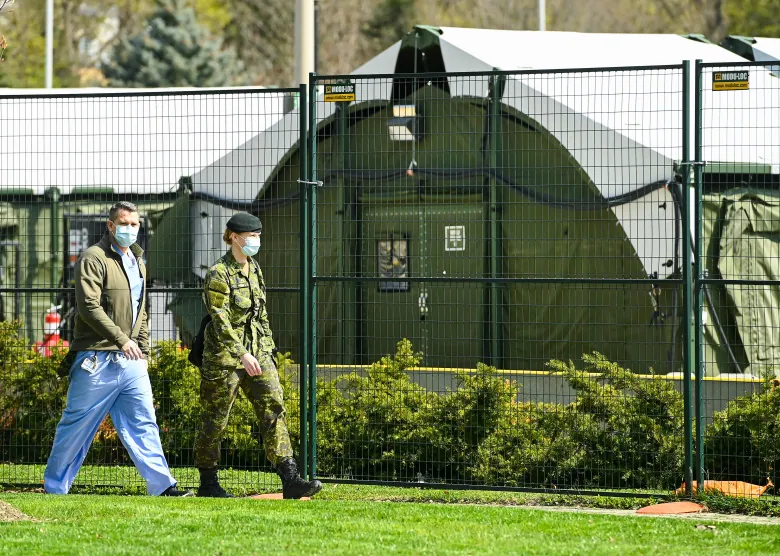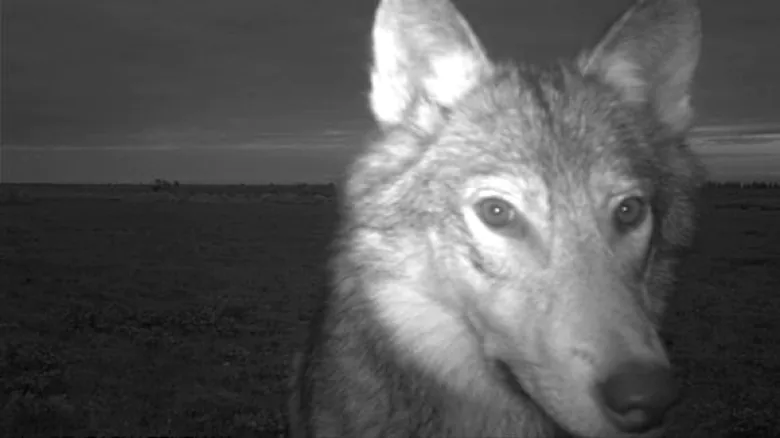Portions of a military information campaign meant to influence the Canadian public during the COVID-19 pandemic continued to operate months after the chief of the defence staff at the time ordered it shut down in the spring of 2020, CBC News has learned.
The Canadian military recently conducted four reviews of controversial initiatives. A copy of one of those reviews was obtained by CBC News under access to information legislation.
That review shows that even after the then-chief of the defence staff, Jonathan Vance, verbally called off the overall influence campaign in April 2020, some influence activities aimed at Canadians carried on for another six months — until Vance issued a written edict in November 2020.
“The public affairs, [civil-military cooperation] and influence activities that were taking place, particularly within [Joint Task Force Central], did not stop,” says the review document, which looked at the origins of the influence campaign.
The review’s conclusion is significant because Defence Minister Harjit Sajjan assured Parliament last year that the activities were halted almost immediately after they got underway. But a variety of problematic initiatives carried on for months after Sajjan’s made his statement, including a propaganda training exercise involving fake wolves in Nova Scotia.
The review document seen by CBC News found that public affairs staff and members of the military’s Civil Military Cooperation section (CIMIC) didn’t catch the “ambiguity” and didn’t see the “obvious link” between what they were doing and what Vance saw as a violation of federal rules.

According to a directive released Wednesday by acting chief of the defence staff Lt.-Gen. Wayne Eyre and Sajjan’s deputy minister Jody Thomas, the military deployed propaganda techniques in Canada without approval during the pandemic and gathered information about Canadians’ online activities without permission from authorities.
The directive from Eyre and Thomas concedes that the military went too far.
“Notwithstanding the best intentions of some members, errors conducted during domestic operations and training, and sometimes insular mindsets at various echelons, have eroded public confidence in the institution,” reads the directive signed by Eyre and Thomas on June 9.
Eyre sent the directive to top military and civilian leaders on Wednesday after CBC News asked the Department of National Defence (DND) why the results of the reviews — all completed at varying times over the last seven months — still had not been made public.
DND said it needed time to look at the results collectively and will release all of the findings in the “coming week or so.”
That timing coincides with Parliament’s summer recess — and the reviews’ findings could get lost in the noise of a fall election, if one is called.
DND insists it hasn’t used ‘psyops’ on Canadians
The Ottawa Citizen first reported on the directive Thursday and has written a series of groundbreaking stories about the Canadian military’s use of information operations during the pandemic.
The military is permitted to run psychological operations while deployed abroad — but it is prohibited from doing so in Canada without specific permission from the federal cabinet.
DND insists the activities undertaken to monitor and shape public discourse as it related to the pandemic did not constitute psychological operations.
In fact, DND denies it has used psychological warfare techniques, honed during the Afghan war, on Canadians. But the line between psychological warfare and information operation campaigns has become increasingly blurry over the last few years.
The directive signed by Eyre and Thomas reminds commanders that “no domestic military operation” in the informational environment should be directed at Canadian citizens.
Consultation ‘minimal and hurried’
The review document obtained by CBC News says the Canadian Joint Operations Command (CJOC), which was being led by Lt.-Gen. Mike Rouleau in April 2020, “liberally interpreted” department policy. The unit decided it had the authority to conduct information operations on Canadians without government approval because it was asked by the government to help with the response to the pandemic.

The review document says that, instead of getting permission from DND or Vance, CJOC “liberally interpreted” a policy on information operations in Canada.
The review document concludes that CJOC’s consultation was “initially minimal and hurried.” It says that only after concerns were raised by the assistant deputy minister of public affairs staff did the unit consult people elsewhere in DND headquarters. When the matter came before Vance, he shut down the operations, says the review.
Even though CJOC’s information operations were ordered shut down, the CJOC order launching the operations “enabled a chain of decisions and problematic activities at lower echelons that caused reputational damage to DND/CAF,” says the directive.
The reviews found information operations were conducted on Canadians without approval and “unsanctioned” reports were produced aimed at monitoring Canadians’ activities online.
The Ottawa Citizen reported last year that a specialized intelligence team scoured people’s social media accounts in Ontario, claiming it was to help the military’s work at long-term care homes hit hard by the pandemic. The data obtained through that work were shared with the Ontario government, the newspaper said.
“Further, teams contravened requirements by not conducting risk assessments prior to conducting activities on the Internet and they collected Canadian citizen information without our explicit direction,” the directive says.
Crying wolf
The military launched another investigation after a reserve unit specializing in information warfare conducted a propaganda training exercise in September, 2020 in Nova Scotia involving a fake letter warning of grey wolves wandering around.

The military apologized and called the exercise a mistake — but even if it was inadvertent, it did amount to a psychological operation used on Canadians to influence their mindsets. Many Nova Scotians believed wolves were on the loose and the province’s Land and Forestry department had to respond publicly, saying the warning was fake.
“These reviews again concluded that members and leaders lacked formal training, policies governing PSYOPS were not well understood, and adequate control measures were not in place for this type of training,” says the directive from Eyre and Thomas.
The directive says “it is clear” that various information operation tools the military is deploying in Canada “have suffered from a lack of institution-wide” direction to ensure the appropriate authority and oversight are in place.

